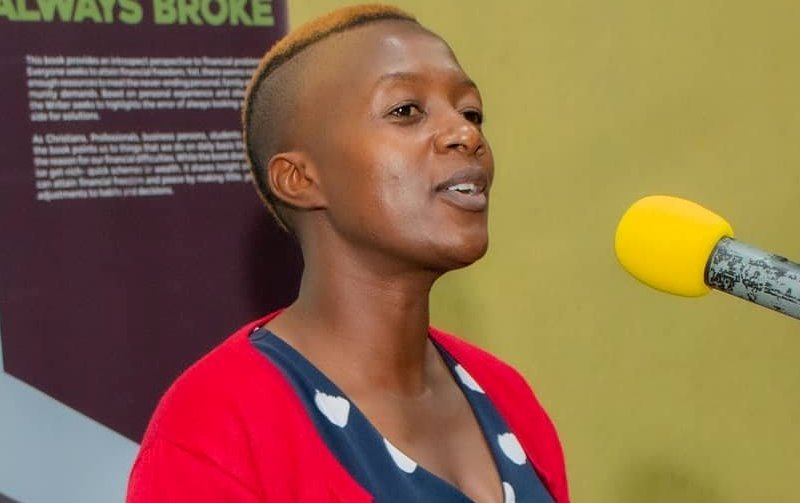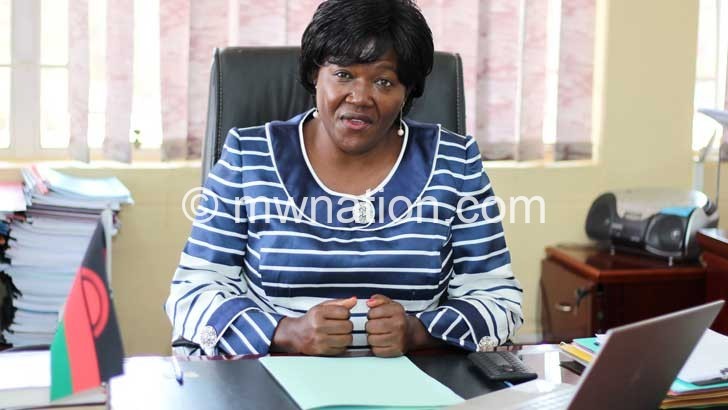Gender inequity stains public service
Gender equality in the public service continues to be a far-fetched dream despite the country coming up with the Gender Equality Act to level the playing field, a Nation on Sunday snap survey has established.
Department of Human Resource Management and Development (DHRMD) spokesperson Kennie Ntonga yesterday admitted that implementing the Act has been a challenge, but said government is making steady progress.

Gender inequality levels in the public sector cast doubts on government’s ability to implement the Act designed to ensure that decision-making positions in the public service are shared between women and men at a ratio of 40:60.
The implementation of the Act seems to be an uphill task even at Cabinet level where women representation is at 38 percent.
Out of 22 Principal Secretaries in charge of different government ministries, only six are women, representing 27 percent.
The female PSs are Chikondano Mussa (Education), Erica Maganga (Defence), Yanira Ntupanyama (Forestry and Natural Resources), Elizabeth Chindevu (National Unity and Civic Education), Nwazi Nthambala (Industry) and Roselyn Makhumula (Gender).

At local government leadership level, we found that out of 35 district commissioners (DCs) and city councils chief executive officers (CEOs), only six are women, representing 17 percent.
The six, according to Ministry of Local Government data, are Grace Chirwa (Salima), Rosemary Nawasha (Machinga), Selina Chimphamba (Luchenza Municipal Council), Reinghard Chavula (Chiradzulu), Malango Botomani (Mwanza) and Fannie Msimuko (Kasungu Municipal Council).
Nation on Sunday also randomly selected 50 parastatals, including service providers, regulatory bodies and public universities. We discovered that about 41 are run by men as CEOs, executive directors and vice chancellors with only nine headed by women, representing 18 percent.
Currently, Parliament’s female representation has fallen to 21 percent from 23 percent after no woman won a seat in the recent 10 by-elections which the death of some legislators while others lost their seats through the courts.
Men Engage Alliance Malawi chairperson Marcel Chisi said in an interview on Wednesday that poor representation of women contravenes the Gender Equality Act which calls for a 40/60 split in gender representation.
He said: “The gap in percentages shows that government itself is failing to fulfil what is in the Act and there is need for the appointing authorities to devise ways of ensuring that the laws are respected.
“On the part of principal secretaries, in the past, they used to be career people. By and large, you needed to have served in the civil service, but we have seen in the recent past that they are more of political appointees.
“If it is still the case in which PSs are picked from anywhere, then we would suggest that in the next appointments, it should be very possible to include more women so that the 40/60 is achieved.”
Chisi further suspected that men’s monopoly in some positions such as DCs was due to lack of qualified women.
He said: “In terms of DCs, we need to be a bit logical because Human Rights Commission is assigned to enforce requirements of the Act.
The commission’s spokesperson Kate Kujaliwa said although they have not received any complaints related to gender inequality in job distribution, she pointed out that signs show there could be challenges in achieving the 40/60 split in civil service.
She said: “As a commission, we have not received any complaint on this issue. However, we have had many complaints of sexual harassment against women. This could be an indicator of imbalances, especially in senior management or decision-making positions.
“It is important to look at the influx of sexual harassment allegations broadly because this could be an indirect complaint to the lack of implementation of the 40/60 quota.”
Kujaliwa further revealed that the commission has been struggling to enforce compliance of the Gender Equality Act due to financial constraints.
“So far, funding towards this has been dismal and we have had to rely on development partners to make sure that we are doing our work as demanded by the Gender Equality Act,” she said.
The Act states that when an appointing or recruiting authority breaks the 40/60 requirement, a court order should be obtained to enforce compliance.
Reads Section 12 (3) of the Act: “Where an appointing or recruiting authority fails to implement the terms of a compliance order, the authority commits an offence and is liable to a fine of K20 000 for every day the compliance order remains unimplemented.”





